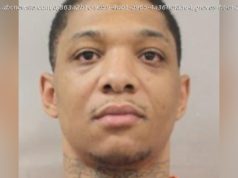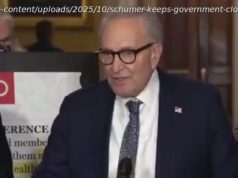Chinese President Xi Jinping pleas for cool-headedness in a call with U. S. President Donald Trump after Trump says America is «locked and loaded» and warned North Korea’s leader he’ll «regret it fast» if he takes action against U. S. territories or allies.
Chinese President Xi Jinping made a plea for cool-headedness over escalating tensions between the U. S. and North Korea in a phone conversation with U. S. President Donald Trump on Saturday, urging both sides to avoid words or actions that could worsen the situation.
The call came after Trump unleashed a slew of fresh threats against North Korea on Friday, declaring the U. S. military «locked and loaded» and warning North Korean leader Kim Jong Un that he «will regret it fast» if he takes any action against U. S. territories or allies.
Trump has pushed China to pressure North Korea to halt a nuclear weapons program that is nearing the capability of targeting the United States. China is the North’s biggest economic partner and source of aid, but says it alone can’t compel Pyongyang to end its nuclear and missile programs.
The White House said in a statement that Trump and Xi «agreed North Korea must stop its provocative and escalatory behavior.» It also said that the two «reiterated their mutual commitment to denuclearization of the Korean Peninsula.»
State-run China Central Television quoted Xi as telling Trump the «relevant parties must maintain restraint and avoid words and deeds that would exacerbate the tension on the Korean Peninsula.»
But restraint was not the word of the day on Friday as Trump sent out a cascade of unscripted statements, including what appeared to be another red line — the mere utterance of threats — that would trigger a U. S. attack against North Korea and «big, big trouble» for Kim.
North Korea’s Minju Joson newspaper, meanwhile, lashed back at the U. S. in an editorial Saturday.
«The powerful revolutionary Paektusan army of the DPRK, capable of fighting any war the U. S. wants, is now on the standby to launch fire into its mainland, waiting for an order of final attack, » it said. DPRK stands for North Korea’s official name, the Democratic People’s Republic of Korea.
The tough talk capped a week in which long-standing tensions between the countries risked abruptly boiling over.
New United Nations sanctions condemning the North’s rapidly developing nuclear program drew fresh ire and threats from Pyongyang. Trump, responding to a report that U. S. intelligence indicates Pyongyang can now put a nuclear warhead on its long-range missiles, vowed to rain down «fire and fury» if challenged.
The North then came out with a threat to lob four intermediate-range «Hwasong-12» missiles near Guam, a tiny U. S. territory some 3,200 kilometers (2,000 miles) from Pyongyang.
At the epicenter of the rhetoric, Trump’s New Jersey golf course, the president seemed to put Kim on notice, saying, «If he utters one threat in the form of an overt threat — which by the way he has been uttering for years and his family has been uttering for years — or he does anything with respect to Guam or anyplace else that’s an American territory or an American ally, he will truly regret it and he will regret it fast.»
Asked if the U. S. was going to war, he said cryptically, «I think you know the answer to that.»
But Trump’s comments did not appear to be backed by significant military mobilization on either side of the Pacific, and an important, quiet diplomatic channel remained open. As a precaution, Japan deployed missile defense batteries under the path a North Korean missile might take.
Life on the streets of the North Korean capital, Pyongyang, also remained calm.
There have been no air raid drills or cars in camouflage netting as has been the case during previous crises. State-run media ensures that the population gets the North Korean side of the story, but doesn’t convey any sense of international concern about the situation.
U. S. officials say they will be going ahead with long-scheduled military exercises with South Korea. Pyongyang says it will be ready to send its missile launch plan to Kim for approval just before or as the drills begin.
Called Ulchi-Freedom Guardian, the exercises are expected to run Aug. 21-31 and involve tens of thousands of American and South Korean troops on the ground and in the sea and air. North Korea claims the exercises are a rehearsal for war, but Washington and Seoul say they are necessary to deter North Korean aggression.
Trump began his Friday barrage with an especially fiery tweet: «Military solutions are now fully in place, locked and loaded, should North Korea act unwisely. Hopefully Kim Jong Un will find another path!»
He later retweeted a posting from U. S. Pacific Command that showed B-1B Lancer bomber planes on Guam that «stand ready to fulfill USFK’s #FightTonight mission if called upon to do so.» »Fight tonight» has long been the motto of U. S. forces in South Korea to show they’re always ready for combat on the Korean Peninsula.
Trump also brushed away calls for caution from other world leaders, including Germany’s Angela Merkel.
«I don’t see a military solution and I don’t think it’s called for, » Merkel said Friday, calling on the U. N. Security Council to continue to address the crisis.
«I think escalating the rhetoric is the wrong answer, » Merkel added.
«Let her speak for Germany, » Trump said, when asked about the comment. «Perhaps she is referring to Germany. She’s certainly not referring to the United States, that I can tell you.»
By evening, he seemed to have mellowed a bit.
«Hopefully it’ll all work out, » Trump said. «Nobody loves a peaceful solution better than President Trump.






